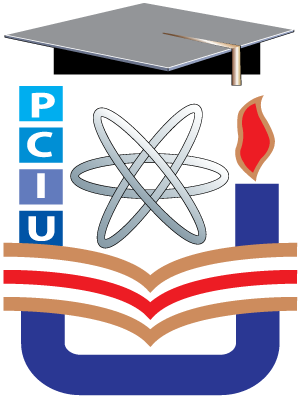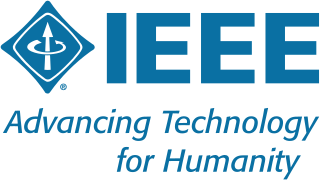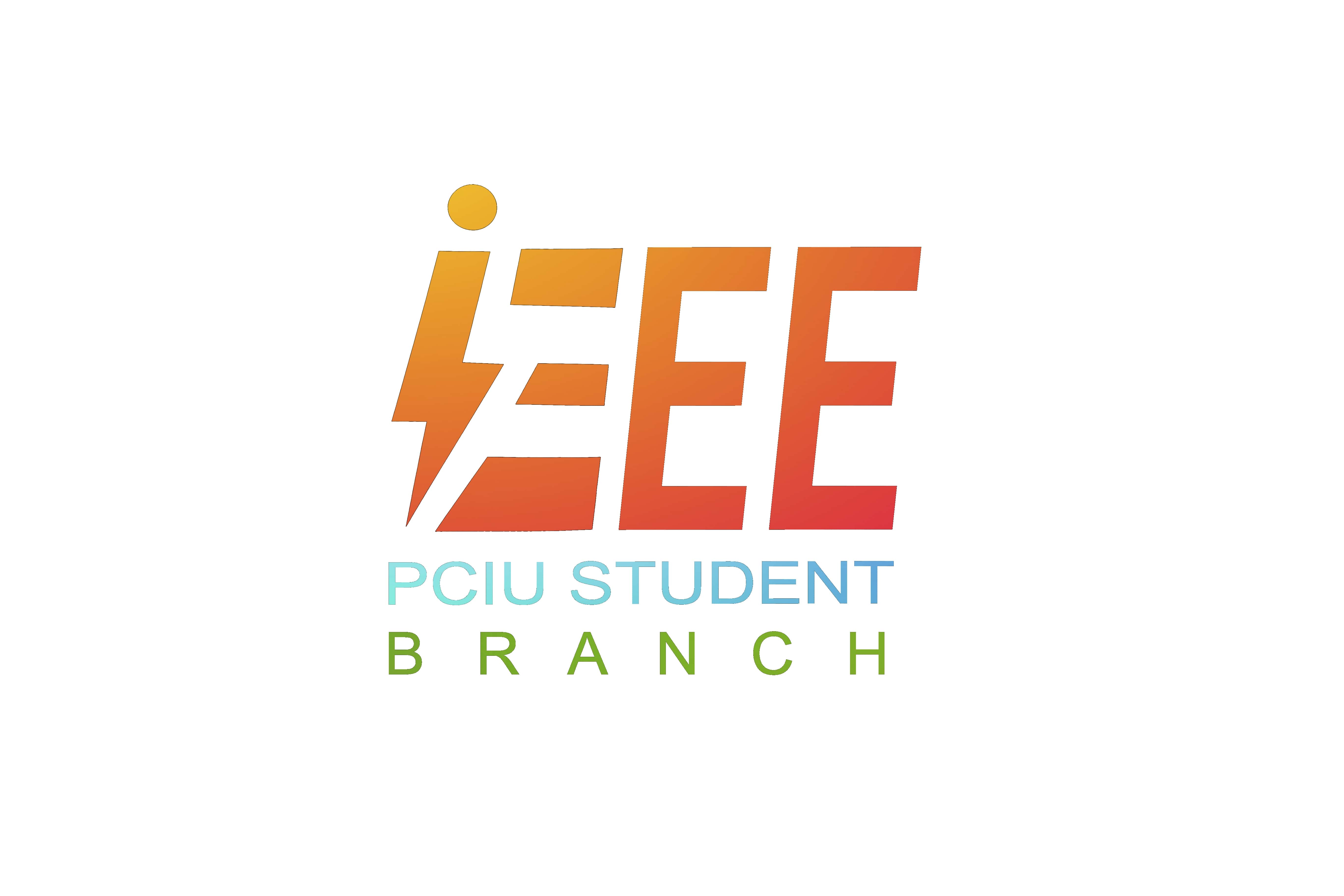Department of Electrical and Electronic Engineering
The Department of Electrical and Electronic Engineering (EEE) was established at Port City International University in 2012 when it started its activities and offers 4 Years graduation program leading to the degree of B.Sc. in Electrical and Electronic Engineering. Electrical and Electronic Engineering is a field of engineering that generally comprises of a number of subfields including electrical power engineering, electromagnetism, electronics, digital systems, telecommunications, electrical machinery and drive systems, control systems, RF engineering, signal processing, instrumentation, and microelectronics which are covered with the excellence of the faculty members of this department. The department is committed to the study and analysis of fundamental as well as applied problems. Teachers and students of the department work in solving problems in the fields of conventional and renewable energy generation, transmission and utilization, power system planning, reliability, operation, control and protection, machine and drives design, microwave circuitry, micro-strip antenna design, remote sensing, design and synthesis of VLSI circuits, semiconductor device design and characterization, digital signals and image processing and bio-medical signal conditioning and identification of processed signals etc. The curriculum has been designed in such a way that helps to develop the ability of students’ to cope with our rapidly changing society as well as their morality to contribute their learning to humankind.
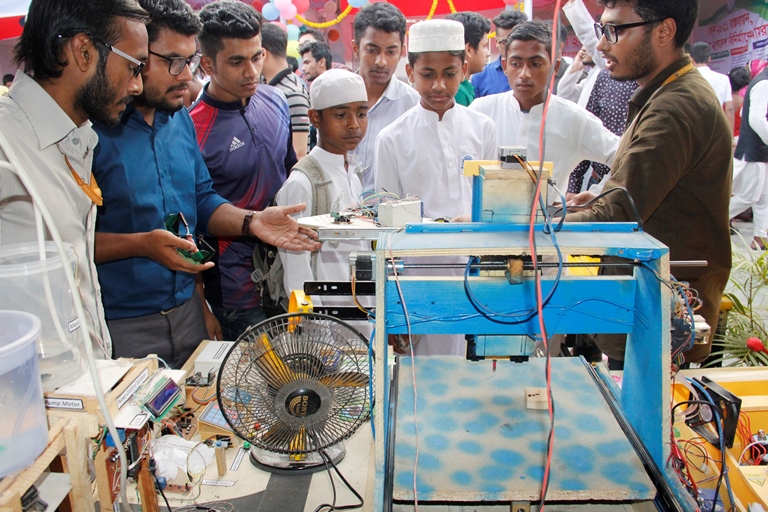
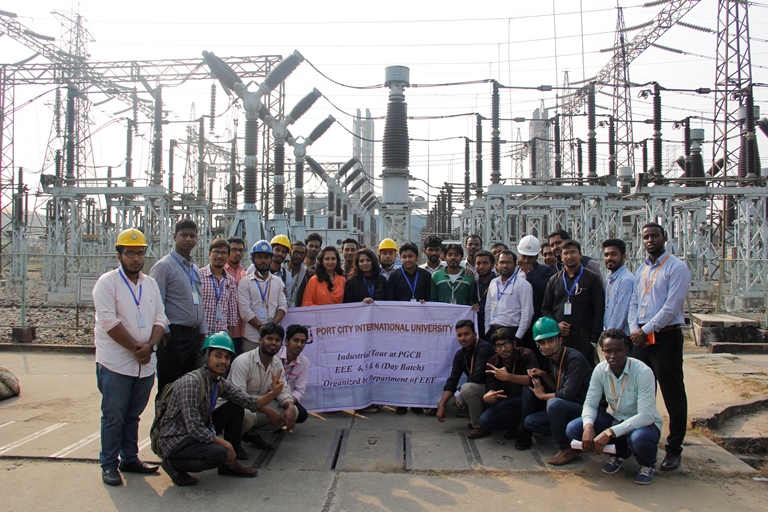
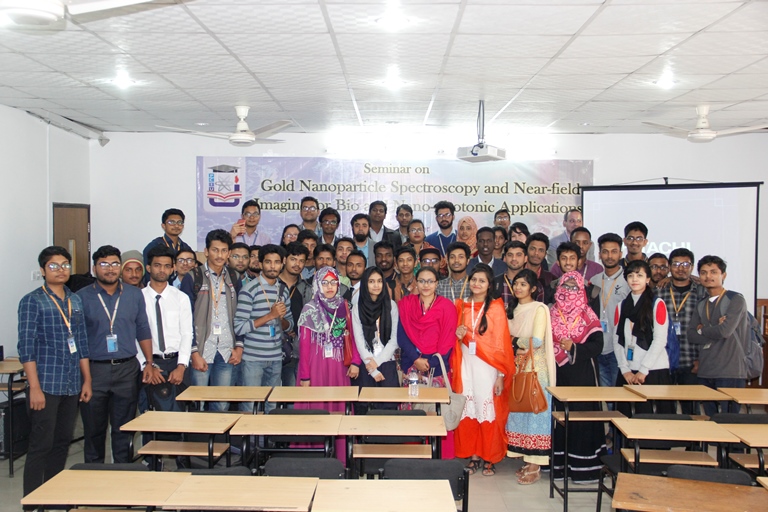
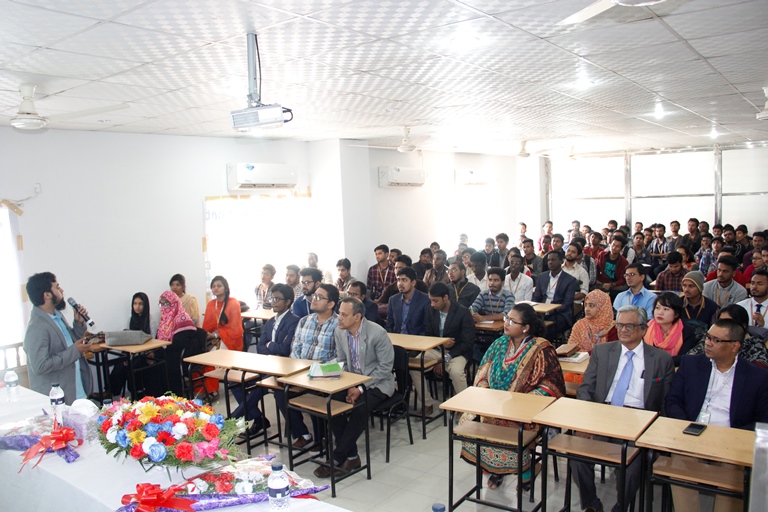
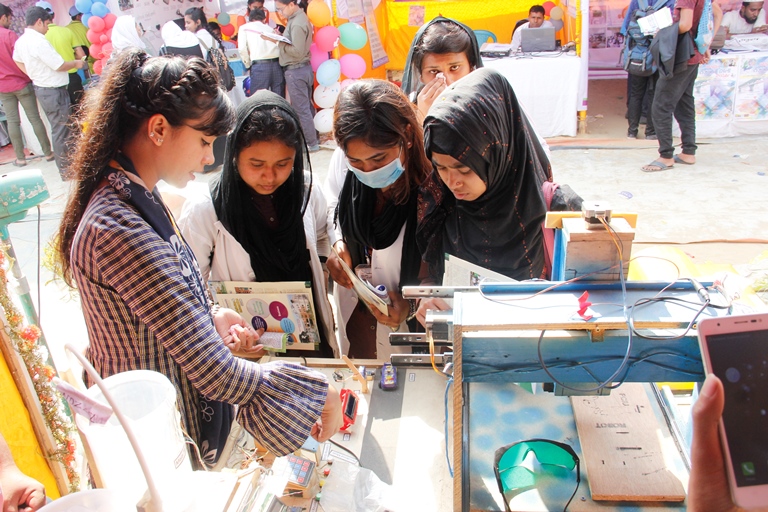
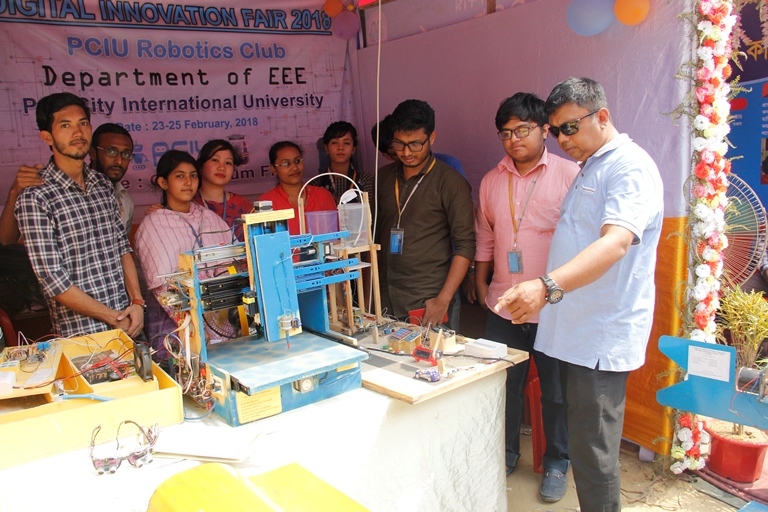
Tuition fees
Total Credit Hours: 157.0
Admission Fee (non refundable): Tk.18,000.00
Tuition Fee (per credit): Tk.2100.00
Total Fees: Tk.3,47,700.00(For student with H. S. C background)
Total Fees: Tk.3,16,200.00(For student with diploma background)
Admission Requirements
> Minimum GPA 2.50 in both S.S.C and H.S.C with science background or equivalent
> Minimum 5 subjects in O-Level and 2 subjects in A-Level with minimum grade of B in 4 subjects and C in 3 subjects from science group
Scholarship & Financial Assistance
> For meritorious and poor students from remote underdeveloped area.
> Special waiver for the children of freedom fighters
> Waiver on S.S.C. & H.S.C. results.
> Need based financial aid
Special Features
> Experienced Faculty members
> Multimedia classrooms
> Wifi campus
> Reach library facility
Academic Policies
BSc in EEE
The Department of Electrical and Electronic Engineering (EEE) was established at Port City International University in 2012 when it started its activities and offers 4 Years graduation program leading to the degree of B.Sc. in Electrical and Electronic Engineering. Electrical and Electronic Engineering is a field of engineering that generally comprises of a number of subfields including electrical power engineering, electromagnetism, electronics, digital systems, telecommunications, electrical machinery and drive systems, control systems, RF engineering, signal processing, instrumentation, and microelectronics which are covered with the excellence of the faculty members of this department. The department is committed to the study and analysis of fundamental as well as applied problems. Teachers and students of the department work in solving problems in the fields of conventional and renewable energy generation, transmission and utilization, power system planning, reliability, operation, control and protection, machine and drives design, microwave circuitry, micro-strip antenna design, remote sensing, design and synthesis of VLSI circuits, semiconductor device design and characterization, digital signals and image processing and bio-medical signal conditioning and identification of processed signals etc. The curriculum has been designed in such a way that helps to develop the ability of students’ to cope with our rapidly changing society as well as their morality to contribute their learning to humankind.
